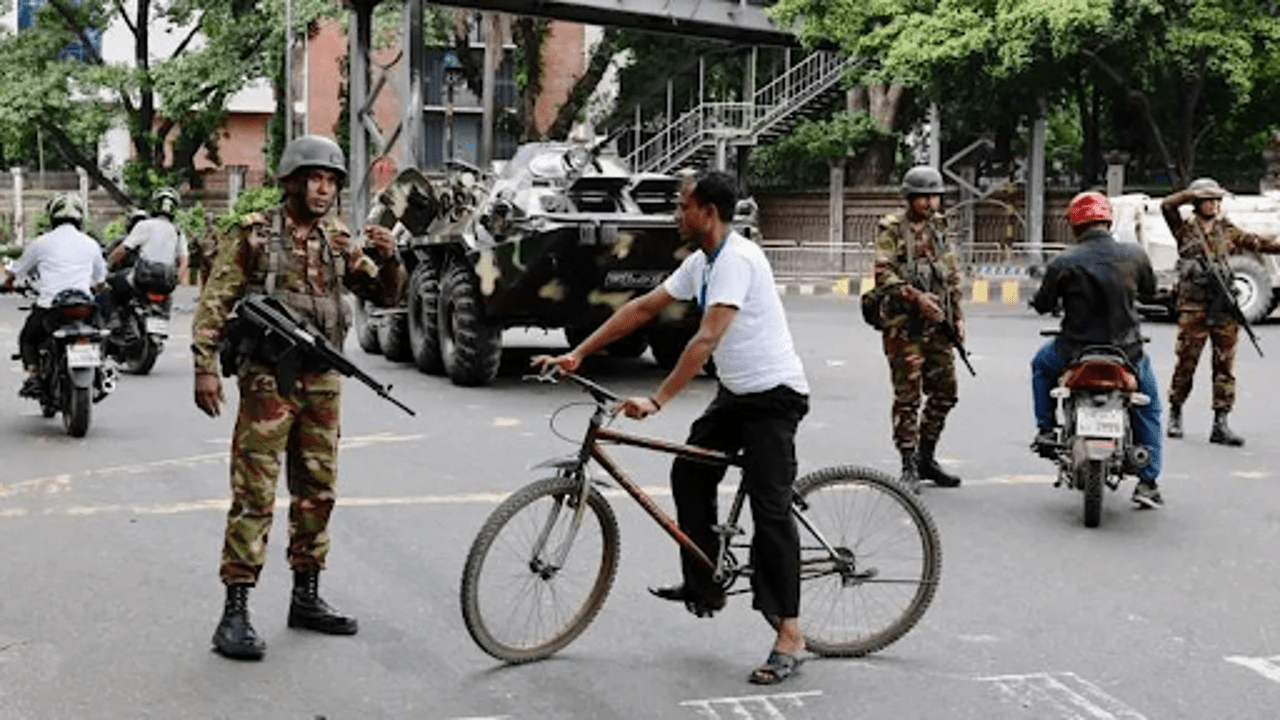
Heavy police forces are now patrolling Dhaka after several days of violent clashes. Reuters
Bangladesh is in turmoil after the country’s top court abolished most of the job quotas that had been at the center of intense protests. The Supreme Court’s decision affects the quota system that reserved government jobs for the families of veterans from Bangladesh's 1971 independence war with Pakistan. This system had previously set aside one-third of public sector jobs for these relatives.
The court’s ruling significantly reduces this reservation to just 5% of government jobs, with the remaining positions to be filled based on merit. Another 2% of jobs will be reserved for ethnic minorities and people with disabilities. This decision comes after violent protests erupted nationwide, resulting in the deaths of more than 100 people.
On Sunday, there were occasional clashes reported in various areas. BBC World
The protests began after a lower court reinstated the quota system, which had been abolished by the government in 2018. The reinstatement led to massive demonstrations, particularly from students and activists who demanded the quota system be scrapped entirely and called for justice for those killed in the unrest.
Violent clashes on Thursday and Friday resulted in over 50 deaths. EPA
In response to the violence, the government imposed a curfew in the capital, Dhaka, and cut off internet services to control the situation. Despite these measures, clashes between protesters and police continued, and there were reports of brutal tactics used by authorities. Protest leaders have accused the police and the student wing of the ruling Awami League party of using excessive force against peaceful demonstrators.
Bangladesh has put a curfew in place. BBC World
One prominent protest coordinator, Nahid Islam, claimed to have been tortured by authorities after being detained. He described being handcuffed, interrogated, and beaten before being abandoned on the street. The police have not commented on these allegations.
The unrest has led to significant damage across Dhaka. Government buildings, police checkpoints, and the city's metro system have been targets of arson attacks. Additionally, a prison break near Dhaka saw over 800 inmates escape, some armed with weapons and ammunition. Police have managed to recapture a number of these escapees.
Students and job seekers are calling for the quotas to be replaced with a merit-based system.Reuters
Analysts suggest that the quota system was being used by the ruling Awami League party to reward supporters and secure future political influence. Law Minister Anisul Huq denied these claims, insisting that the quota system was fair and that the majority of the ruling party's members had been freedom fighters or supporters of the independence war.
The unrest reflects broader frustrations in Bangladesh, where rapid economic growth has not translated into adequate job opportunities for university graduates. With around 18 million young people seeking employment, there is high unemployment among graduates compared to those with less education.
Protests have also spread beyond Bangladesh. Demonstrations have taken place in the US and the UK, with Bangladeshi students and activists rallying in places like Times Square in New York and East London. These international protests have focused on demanding justice for the victims of the recent violence and calling for an end to the government’s policies.















